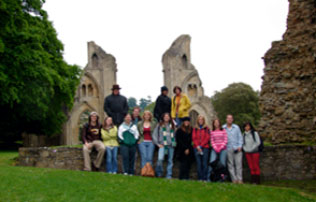Academic Planning - History

Why Should I Major in History?
Majoring in History will broaden your knowledge of the world today and deepen your understanding of the past in all its complexity. You will work with internationally recognized teacher-scholars whose teaching and research expertise runs from the United States and America; Latin America; Greek, Roman and medieval history; Germany and modern Europe; Ukraine, Russia, and Eastern Europe; China, Japan, East Asia, and Southeast Asia; and Islamic and Middle Eastern history. You will examine archival and published primary sources and become familiar with research methods and interdisciplinary approaches drawn from the humanities, social sciences, and natural sciences. You will improve your analytical writing, critical thinking, and communication skills through a range of lecture, discussion, and seminar-based classes. You will also be encouraged to study foreign languages and cultures, including the pursuit of study-abroad opportunities. Finally, you will bring these experiences together in researching and writing a senior research project of your own choosing with close mentorship by professors.
Beyond the Classroom
As a History major, you will have many opportunities to apply what you have learned beyond the classroom. These include internships and collaborations with the Colonial Williamsburg Foundation and the colonial apothecary shop; the National Museum of the U.S. Navy (Washington, DC); the Christian Science Monitor; the West Volusia Historical Society; ICON (The International Journal for the History of Technology).
History students have also conducted funded research (research grants) at the National Archives, the Library of Congress, the Smithsonian Museums, Yale University, Columbia University, the National World War II Museum, the San Diego Air and Space Museum, the National Museum of the US Air Force, the National Naval Aviation Museum, and the Boston Public Library.
Moreover, History majors have shared their research by delivering prize-winning papers at national and regional conferences and published articles in venues such as the Florida Historical Quarterly and the Modern Encyclopedia of Religions in Russia and the Soviet Union.
Upon graduation, a History degree from Stetson offers you versatility, leading to various career paths across multiple industries, and opportunities for graduate and professional school. History graduates have been admitted to numerous graduate and professional programs at schools such as Cornell University, Oxford University, the University of California-Berkeley, Georgetown University, New York University, the University of North Carolina at Chapel Hill, American University, the Ohio State University, the University of Georgia, Durham University (UK), multiple universities in South Korea and Taiwan, and Central European University. Furthermore, you can pursue careers as museum professionals, political advisors, cultural resource managers, educators, journalists, private consultants in planning and conservation, restoration experts, archivists, archaeologists, and more.
The Major
Check for updated information about a major in History through the University Catalog.
The Minor
A minor in history consists of four units of history courses, one in the history of civilizations and two at the 300 level or above.
Further Reading
For a list of requirements for the history major, please see the Stetson University Catalog.